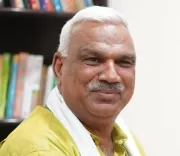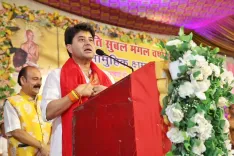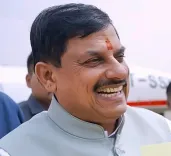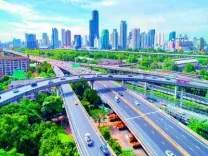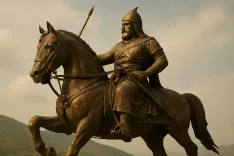Former Tripura CM Advocates for ONOE, Promises Savings
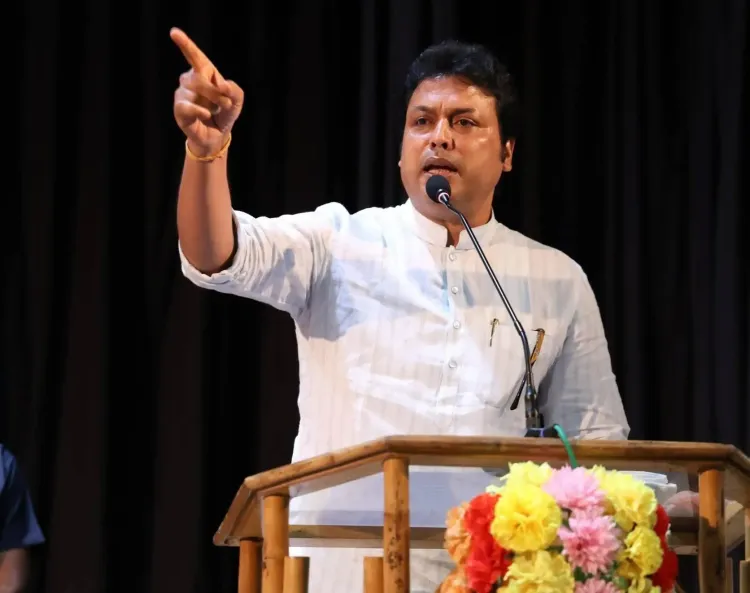
Synopsis
Key Takeaways
- ONOE Bill could save time, money, resources.
- Historical context: simultaneous elections pre-Congress.
- Criticism of Congress and CPI-M for hypocrisy.
- Focus on welfare programs and youth opportunities.
- Support for Modi’s vision of a developed India by 2047.
Agartala, April 8 (NationPress) Former Tripura Chief Minister and Lok Sabha Member Biplab Kumar Deb on Tuesday firmly endorsed the 'One Nation, One Election' (ONOE) Bill, asserting that this initiative would lead to substantial savings in time, money, and resources.
A Member of Lok Sabha representing the Tripura West constituency, Deb, while speaking at a series of conventions regarding ONOE, clarified that the concept is not merely a creation of the BJP.
“Following India’s Independence, holding simultaneous elections was standard practice. It was the Congress party’s misuse of Article 356 to dissolve state governments that disrupted this process,” he elaborated.
The former Chief Minister further criticized both the Congress and the CPI-M for their “hypocrisy”, stating, “When they were in power, they supported this system. Now they label it a threat to democracy. This indicates their lack of comprehension of our political history.”
Deb emphasized that a synchronized election process would foster political stability, hasten development, and enable the government to allocate funds more effectively toward welfare initiatives.
As the former President of the BJP’s Tripura unit, he stated that the passage of the Bill would allow the nation to conserve significant resources, time, and focus on the development and welfare of its citizens.
He noted that elections incur substantial public expenditure, and any opportunity to save these costs should benefit the populace.
“By implementing ONOE and saving funds, Prime Minister Narendra Modi would be able to introduce numerous additional schemes for the advancement and welfare of the people,” he asserted.
Deb mentioned that after the ONOE is enacted, both the Central and state governments could concentrate on long-term strategies, making progress, and providing enhanced opportunities for the youth.
“The ONOE would diminish political animosity and promote governance rooted in performance. It would represent a significant step towards realizing Prime Minister Narendra Modi’s vision of a developed India by 2047,” he remarked.
As part of the BJP’s extensive campaign, Deb addressed a series of conventions on ONOE in the West Tripura district on Monday and Tuesday.
The 39-member (27 from Lok Sabha and 12 from Rajya Sabha) Joint Committee of Parliament, led by BJP MP P.P. Chaudhary, is currently evaluating the ONOE Bill and gathering feedback from the public and various stakeholders.

